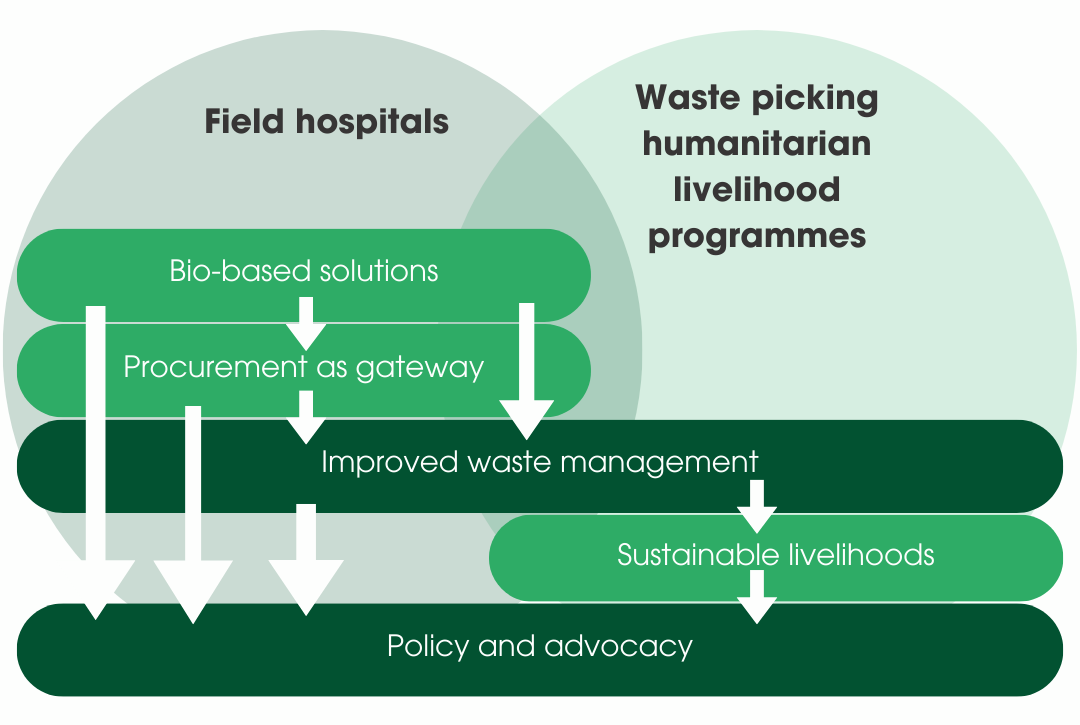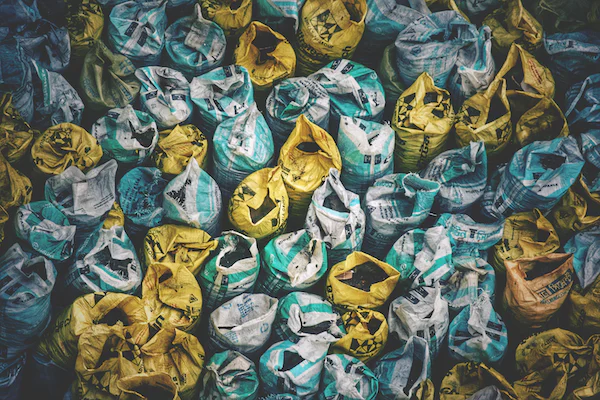WORM aims to reduce the environmental impact of humanitarian operations by designing guidelines and support actions
Our objectives

WORM focuses on two selected settings: field hospital deployments, and humanitarian livelihood programmes with a waste picking component.
Across these settings, the project focuses on several cross-cutting focus areas:
- To identify and integrate bio-based solutions in the humanitarian context for waste treatment;
- To use the full potential of sustainable procurement as a gatekeeper for waste avoidance and gateway for innovative solutions implementation;
- To propose safer and more environmentally responsible waste treatment methods;
- To enhance local awareness of improved waste management through targeted and community-based campaigns;
- To provide guidelines and policy recommendations for reducing the environmental impact and maximizing the socio-economic effects of humanitarian operations
Bio-based technological innovative solutions
WORM seeks to identify appropriate bio-based technological innovative solutions for the humanitarian context.
WORM evaluates their sustainability from an environmental, technical, social and economic perspective. It recognises trade-offs between biodegradability and durability for preparedness, hygiene requirements in health and humanitarian operations, as well as the opportunity costs of raw material choices with regards to food security and deforestation ; and implications of changes in materials on the livelihoods of waste pickers.


Development & evaluation of waste treatment methods
For a field hospital setting, WORM further develops standard operational procedures (SOPs) for the use, reuse, maintenance and repair, repurposing, recycling, refurbishment and reverse logistics of various materials, components, and products; and even for the handover and recovery of field hospitals and their materials. Furthermore, WORM evaluates different waste treatment methods as alternatives to otherwise toxic incineration techniques that are currently in use, and a set of WM guidelines and policy recommendations for field hospitals. Further waste management guidelines and even local awareness campaigns are developed for livelihood programmes, highlighting the crucial role of informal waste-pickers. Collaboration and sustainable innovation between sectors to create new business models is also an objective for WORM.
Policies and mitigation strategies
WORM develops policies and mitigation strategies for the use and usability of bio-based solutions in the humanitarian context. Further innovative circular economy solutions are identified from local contexts, and WORM develops guidelines and policy recommendations for the scaling up of sustainable and circular business models.